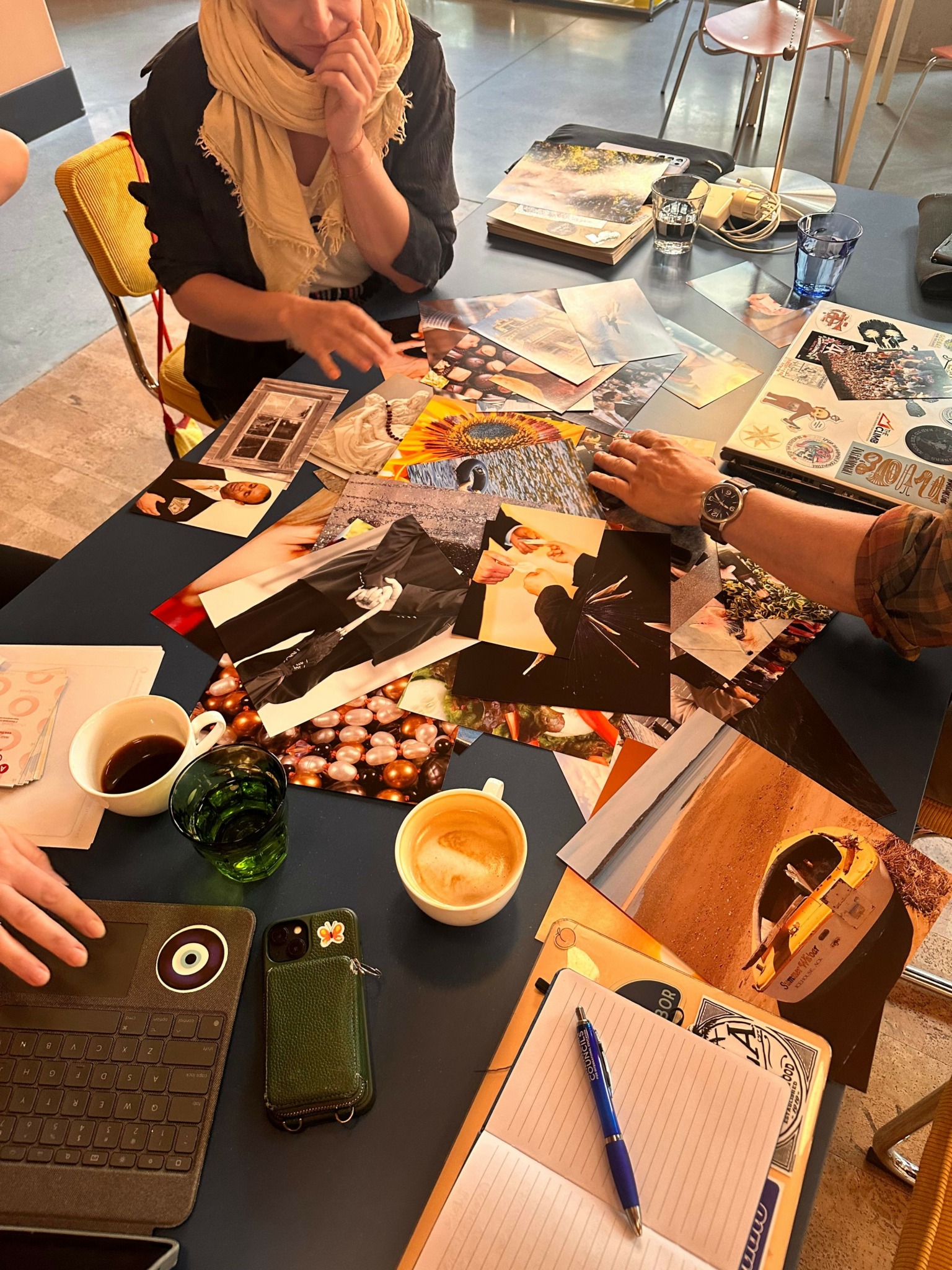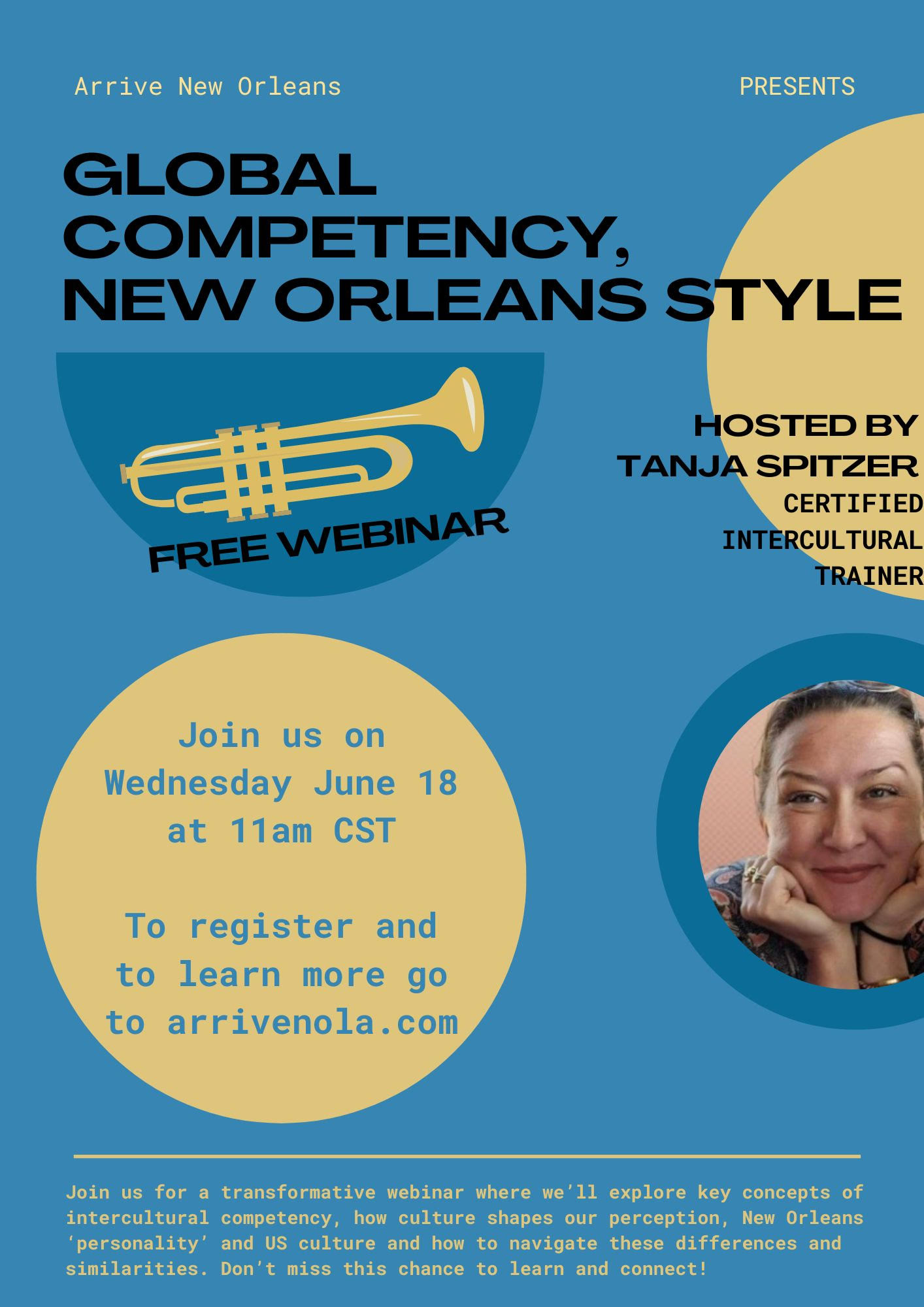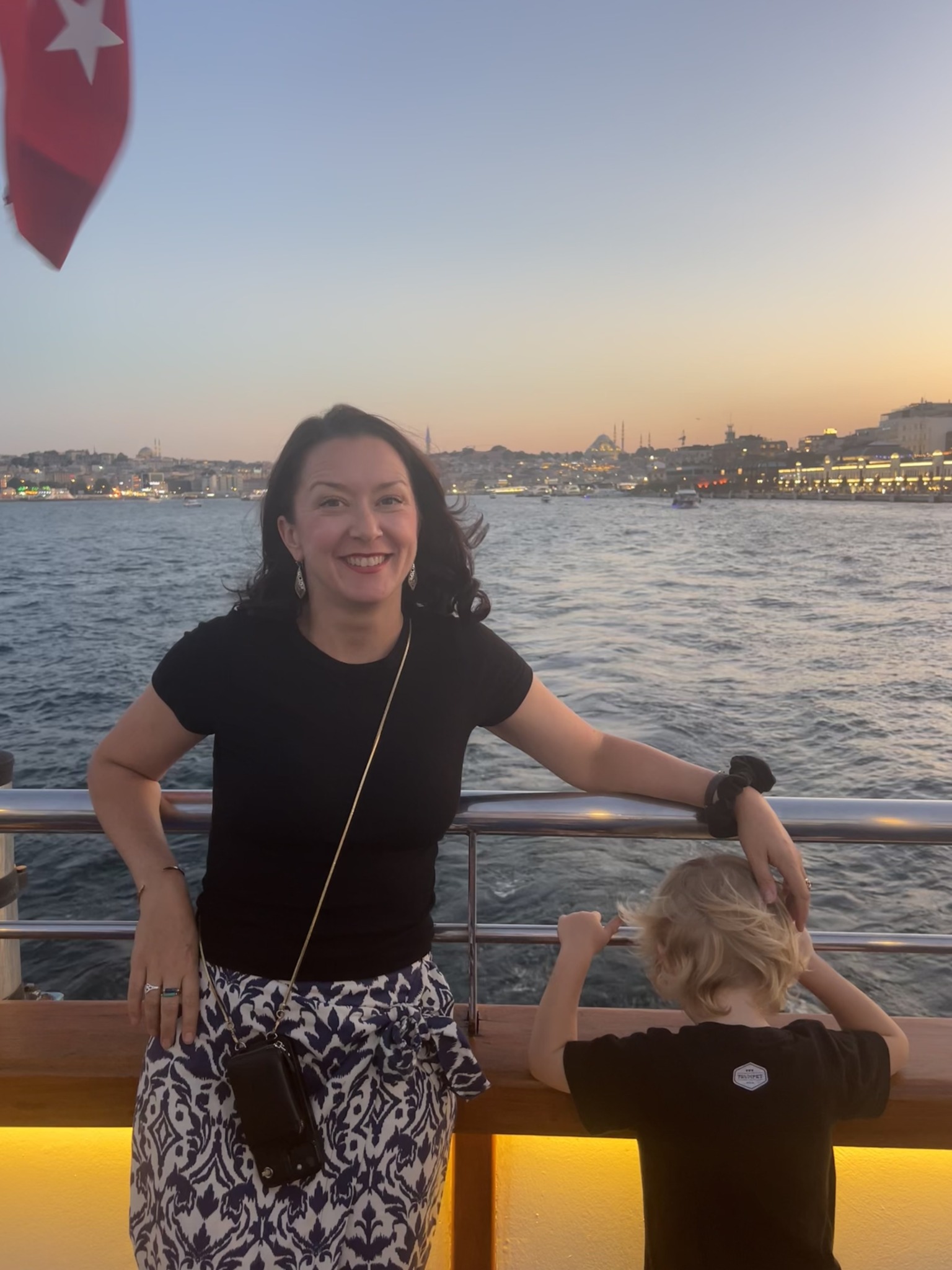We’re excited to introduce you to the always interesting and insightful Tanja Spitzer. We hope you’ll enjoy our conversation with Tanja below.
Tanja , appreciate you joining us today. When you were first starting out, did you join a firm or start your own?
I had wanted to work in the intercultural field since I first was thrown into it more or less by accident. I attended a summer school program in Germany on the topic. Having lived abroad both as a child and an adult I figured there wouldn‘t be much to learn, but I was dead wrong. My mind was blown by what I learned and I wanted to share it with everyone.
I went back to school to earn my degree and worked on my move to the United States (I had fallen in love with New Orleans during a year abroad). However, I was tied to degree programs and office work which I enjoyed (mostly because I’m a very social person and I loved my coworkers) but which didn’t satisfy my desire to continue on this intercultural path.
I became a mother in late 2021 – a celebratory event that suddenly turned tragic when the older of my twins died at only a month old due to complications at birth. His passing forced me to reevaluate everything in my life and it was clear that I did not want to go back to a 9-5 job.
I did, however, want to go back to my love of everything international and intercultural. After a long break and many hours, days and weeks figuring out what that could look like (and huge thanks to Shaddai Livingston from LivCon Solutions for guiding my clueless self through the business side of things!) I opened „Arrive New Orleans“.
I made my fair share of mistakes and it is still a work in progress but I am happy to say that I am now officially a certified intercultural trainer; able to do something I deeply care about while doing it at my own pace and one that works with our family.
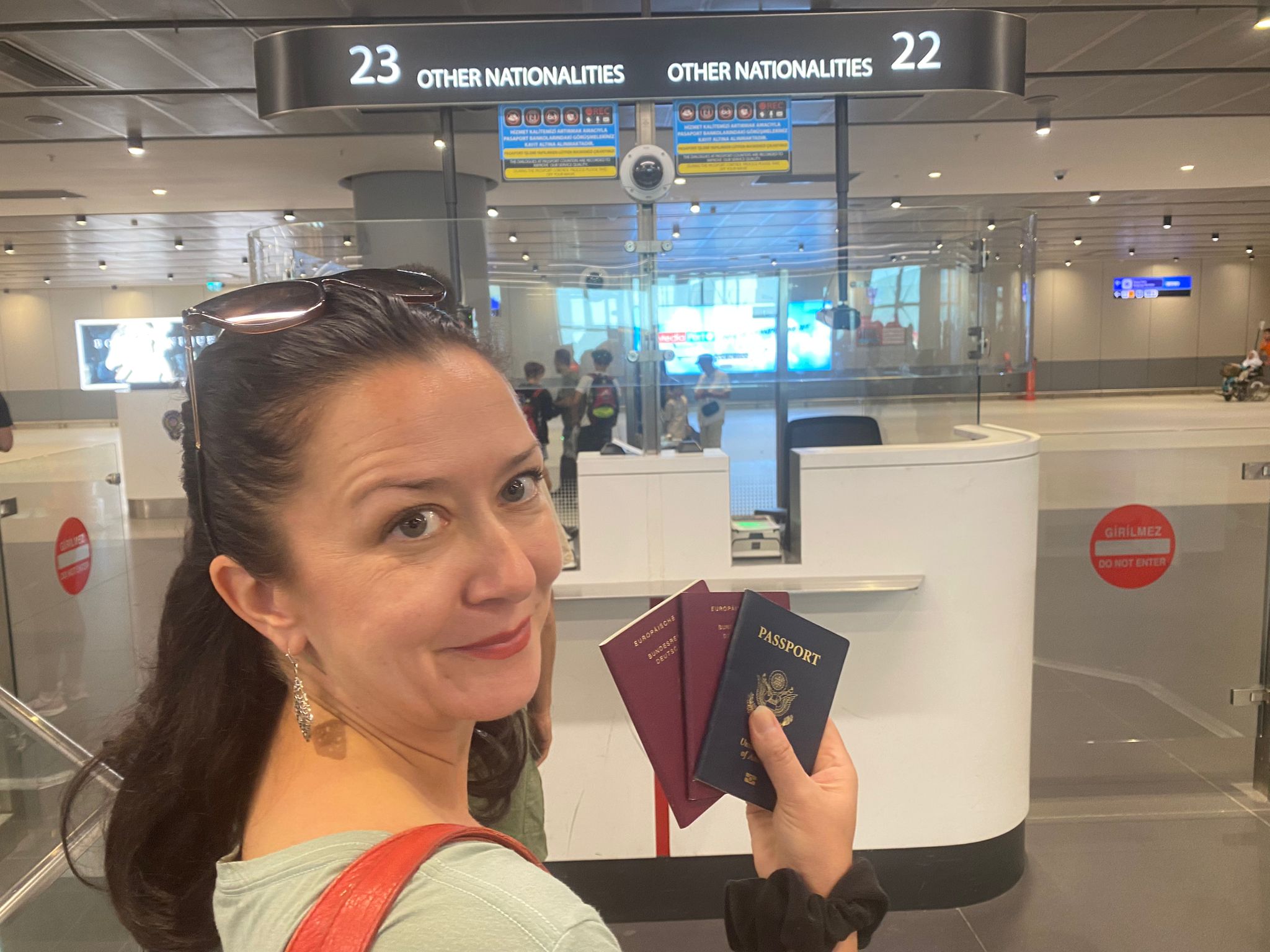
Tanja , before we move on to more of these sorts of questions, can you take some time to bring our readers up to speed on you and what you do?
Have you ever spoken with someone from another country and felt like something just didn’t click—like you were not ‚getting’ each other, even though you both spoke English? Or maybe you’ve been the outsider yourself, living or traveling abroad and suddenly feeling off-balance or frustrated by how differently things were done? —- I’m a German living in the US, with earlier chapters of my life spent in Turkey as a child, and later in Austria and France. Because I’ve been on both sides of this experience, my work now focuses on helping others navigate these challenges with practical, effective intercultural training.
It’s not just about learning the obvious stuff—like how to bow in Japan or greet someone with a cheek kiss in France. It helps you understand why people from different parts of the world speak, behave, and work the way they do—and how to navigate those differences with fewer missteps. In business, this kind of awareness is critical—miscommunication can cost time, money, and trust. But it’s just as valuable in everyday interactions, whether you’re working with international colleagues, traveling to a new country, or just trying to make someone feel welcome. In broad terms, intercultural training teaches you to communicate across cultural borders in ways that are appropriate to the other person and effective for you. It also helps you make sense of both the small ‘quirks‘ and big frustrations that can come up. Plus, it‘s fun, eye-opening, and surprisingly useful in real life. I’m a big fan of humor—and learning about culture doesn‘t have to be too stiff. It can be joyful, surprising and entertaining! So I’m particularly proud of my sessions that are a good combination of insight and practical takeaways along with laughter and a good story!
As an expat myself, I’ve experienced both the highs of discovering new places and the lows of feeling disconnected. That’s why I care so deeply about this work. Even a basic understanding of intercultural dynamics can ease those tough moments and help people feel more grounded and understood.
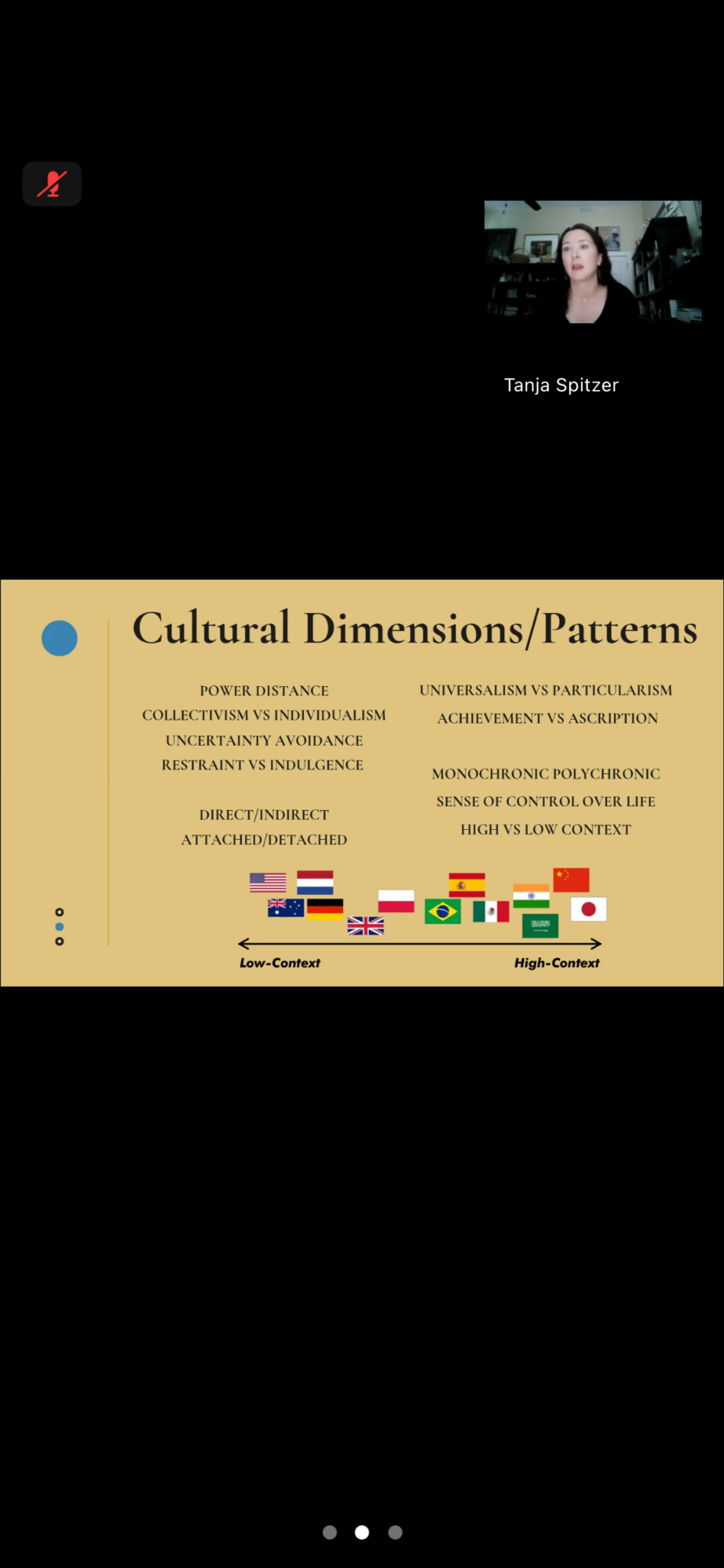
What’s a lesson you had to unlearn and what’s the backstory?
I am a total perfectionist and, having gotten 3 advanced degrees, I am always holding myself to the highest academic standards. That does NOT work in real life, unless you want to never actually go and do things.
I heard someone say once: The world needs your presence – not your perfection! And I remind myself of that every time that I fear getting lost in minuscule research or fear of putting something out there if it is not 110% perfect. It can be stifling to always wanting perfection, to never have an idea, a plan, or a session be just right.
So i had to unlearn this fear of the imperfect and sometimes just go and do!
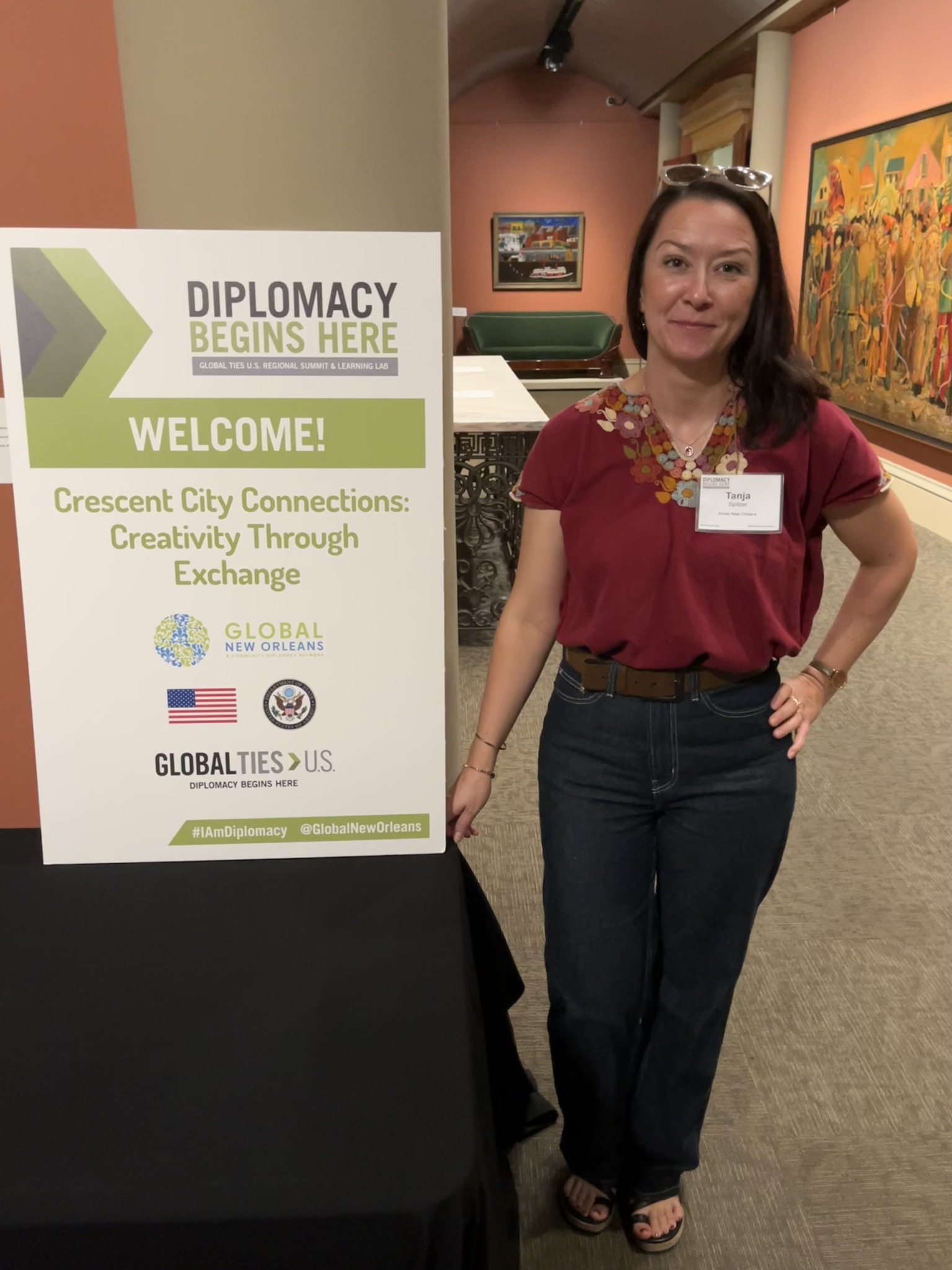
How about pivoting – can you share the story of a time you’ve had to pivot?
I have made more than a few pivots in my life – some planned, others… not so much. It took me a while to realize what all these roads travelled have in common: an enduring love for cultural exploration—and an unexpected but consistent sidekick—comedy. Those two themes are really at the core of what I have always done and cared about.
In regards to my business, the pivot came with the realization that I’m trying to be too much for too many – and needing to find my niche. The way I approached business was too vague – I figured if I offer everything related to international living something will stick. But thankfully I found some sound voices along the way that forced me to look at my business idea and narrow it down to its essence. I am a person who is interested in a LOT of things and focusing on just one is hard for me to do. But it has been very helpful in creating a coherent message!
Contact Info:
- Website: https://Arrivenola.com
- Instagram: https://www.instagram.com/arriveneworleans?igsh=N3pwNjRoYmRxcmc=
- Linkedin: https://www.linkedin.com/in/tanja-spitzer-51a49b2b7?utm_source=share&utm_campaign=share_via&utm_content=profile&utm_medium=ios_app
